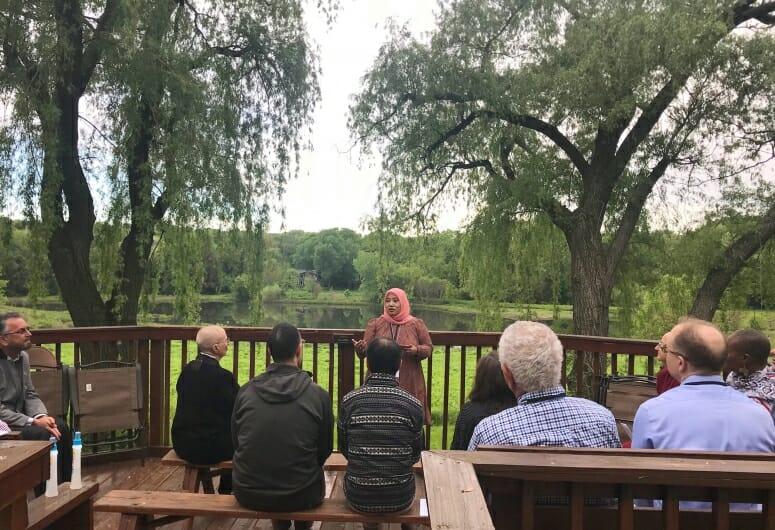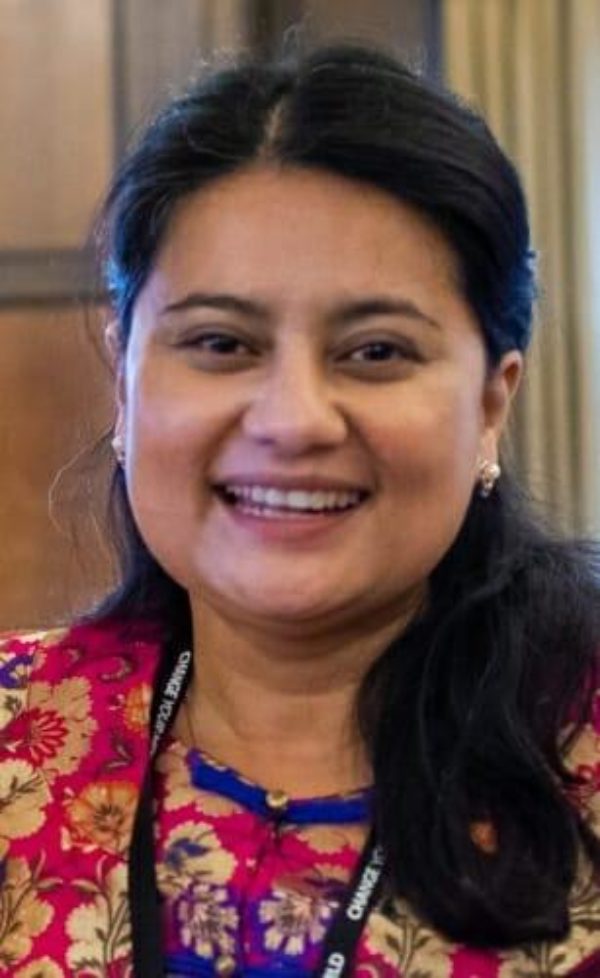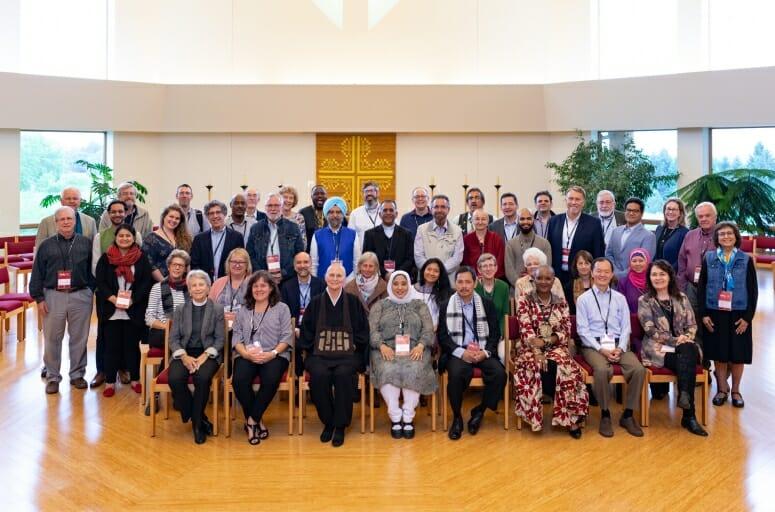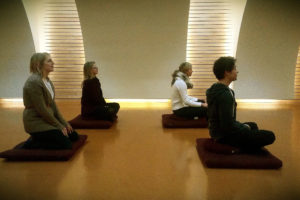Many faiths and traditions were represented at the symposium — Buddhist, including Zen and Tibetan; Christian, including Catholic, Baptist, Evangelical, Episcopal and Lutheran; Hindu; Islam; Judaism; Sikh; and Sukyo Mahikari. Indigenous leaders attended, representing the Anishinaabe; Diné (Navajo); Ho-Chunk; Mandan, Hidatsa and Arikara Nation; Mayan; Menominee; and Tsétsêhéstâhese (Cheyenne).
“All of us, Christian or not, must recognize our responsibility and obligation to protect Creation from the catastrophic effects created by climate change,” says Sally Bingham, Episcopal, founder of Interfaith Power and Light.
The room was full of faith — and science.
“For me, the goal of the symposium was to bring together faith leaders who have been leading environmental and climate work on the ground and scientists who want to provide help and apply their knowledge in a way that is practical, and for both groups to hear each other directly on what is most needed from the other,” Chungyalpa says.

The symposium was a chance to talk about what had already been working and what hadn’t. The question of how to get people to care and actually do something is constant. Chungyalpa gets it.
“Apathy can come from being overwhelmed and terrified and not knowing what to do,” she says. “Sometimes too much information can be as overwhelming as too little information.”
That means listening and trying to understand where people are coming from instead of dismissing them outright.
“We humans are, in reality, such an optimistic species. Our assumption is something else is going to stop the environmental and climate crisis — someone else is going to fix this,” Chungyalpa says. “The reality, of course, is it’s going to take each and every one of us.”
And it’s going to take ecological, communal and personal resilience — one of the topics of the symposium.
Taking action
Musonda Mumba flew from Kenya to Madison for the symposium. She worked with Chungyalpa at the World Wildlife Fund and is now head of the United Nations Environment’s Terrestrial Ecosystems Programme. For her, taking action is part of resilience.
Born in Zambia, her environmental work has brought her all over the world. She’s seen significant changes back home and in her travels.
“Something deep has happened in our communities and I think this meeting is a demonstration of knowing that. There’s a realization on this planet — a collective realization that there’s something as humanity we’ve done wrong.”
In March, The UN General Assembly declared 2021–2030 the UN Decade on Ecosystem Restoration. The aim is to massively scale up the restoration of degraded and destroyed ecosystems as a proven measure to fight the climate crisis and enhance food security, water supply and biodiversity.









